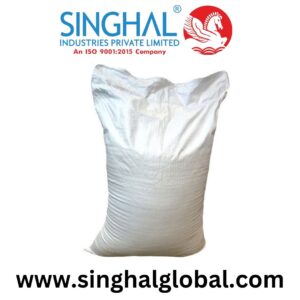Commodity Trading Time in India: A Complete Guide
Introduction
Have you ever wondered when is the right time to trade commodities in India? Just like a farmer plants seeds in the right season, a trader needs to know the correct market hours to maximize profit. Commodity trading is not a 24/7 market in India; it runs on a specific schedule governed by Multi Commodity Exchange (MCX) and NCDEX.
If you’re new to trading or maybe exploring a share market course online, understanding the trading times is your first step toward smart investing. In this guide, we’ll break down India’s commodity trading hours with simple explanations, tips, and analogies to help traders like you—whether beginner or advanced—make informed decisions.
Learn about commodity trading time in India, commodity trading time schedules, and share market course online options. A practical guide for all traders.
What is Commodity Trading in India?
Commodity trading allows you to buy and sell physical goods like gold, silver, crude oil, natural gas, agricultural products, and metals. Instead of directly holding these products, traders buy futures contracts that represent them.
Think of it like booking a hotel room in advance. You don’t stay immediately, but you guarantee your booking for a future date. Similarly, commodity futures allow traders to secure prices now for a future delivery.
Importance of Knowing Commodity Trading Time
Timing in trading is like timing in cricket—you swing at the wrong moment, and you’re out. Each commodity has specific market hours. A delay of even a few minutes could result in missed opportunities.
By understanding trading times:
- You can align with global market trends.
- Maximize chances of profit.
- Avoid unnecessary risks from illiquid trading sessions.
Commodity Trading Exchanges in India
Two main exchanges handle commodity trading:
- MCX (Multi Commodity Exchange): Mainly for metals, energy, and bullion trading.
- NCDEX (National Commodity and Derivatives Exchange): Primarily for agricultural commodities.
Both function under SEBI’s guidelines and follow structured trading hours.
Trading Sessions in India
Indian commodity markets are divided into two main sessions:
- Morning Session: 9:00 AM to 5:00 PM (Mostly agricultural commodities).
- Evening Session: 5:00 PM to 11:30/11:55 PM (Bullion, metals, energy commodities—linked with global markets).
This means a trader can continue trading almost till midnight, unlike stock markets, which close at 3:30 PM.
Morning Session: Indian Commodity Market Opening
The morning session starts at 9:00 AM sharp. This session is important for commodities related to agriculture such as:
- Spices (turmeric, jeera, coriander)
- Oil seeds (soybean, mustard)
- Grains (wheat, maize, chana)
Since these are India-centric commodities, they usually close by 5:00 PM.
Evening Session: Global Market Influence
The evening session is where the real action begins! This is because international markets—especially London and US commodity exchanges—open up.
- Trading Time: 5:00 PM to 11:30 PM (sometimes extended to 11:55 PM).
- Commodities like gold, silver, crude oil, copper, and natural gas are highly influenced by international price movements.
If you’ve ever tracked gold prices, you’ll notice they fluctuate most in the evening session because of global trading activity.
Commodity-wise Trading Hours in India
Here’s a breakdown of popular commodities:
- Gold & Silver: 9:00 AM to 11:30/11:55 PM
- Crude Oil & Natural Gas: 9:00 AM to 11:30/11:55 PM
- Copper, Zinc, Aluminum, Nickel: 9:00 AM to 11:30/11:55 PM
- Agricultural Commodities (Wheat, Chana, Mustard): 9:00 AM to 5:00 PM
Why Trading Hours Differ by Commodity?
Agricultural commodities depend on Indian market supply and demand, so their timings are shorter. On the other hand, metals and energy commodities are tied to global demand, hence extended timings.
Best Times to Trade Commodities in India
Although you can trade for long hours, experts suggest the most active and liquid times are:
- 10:00 AM to 12:00 Noon (Morning peak).
- 7:00 PM to 10:00 PM (Evening global market peak).
This is when maximum volume happens, just like rush hour traffic in cities.
Tips for Beginners in Commodity Trading
- Always start with one or two commodities instead of many.
- Follow both Indian and international news.
- Use a demo account or virtual trading before risking real money.
- Consider enrolling in a share market course online for structured learning.
Role of MCX and NCDEX
- MCX: Focuses on bullion, metals, and energy. Daily turnover is higher, making it India’s most popular exchange for commodities.
- NCDEX: Specializes in agriculture. Farmers and traders often hedge their risks here.
Commodity vs Stock Market Trading Timings
| Market | Opening Time | Closing Time | Evening Session |
| Stock Market (NSE/BSE) | 9:15 AM | 3:30 PM | NA |
| Commodity Market (MCX/NCDEX) | 9:00 AM | 5:00 PM / 11:30–11:55 PM | Yes |
Commodity markets clearly provide more trading hours compared to stock markets, giving flexibility to part-time traders.
How Online Share Market Courses Can Help
A share market course online doesn’t just teach stock trading—it also covers commodities. You’ll learn about:
- Reading commodity charts.
- Timing entries and exits.
- Risk management strategies.
- Technical analysis tools.
This training helps beginners trade with confidence.
Mistakes to Avoid in Commodity Trading
- Overtrading: Don’t trade just because the market is open.
- Ignoring Global News: Commodity markets are influenced by international prices, especially metals and crude oil.
- Not Watching Closing Times: Exiting late can force traders to take delivery, which is usually undesirable.
Conclusion
Knowing commodity trading time in India is just like knowing the schedule of a train. If you arrive late, you miss the opportunity. With extended evening sessions, flexible timings, and influence from global markets, commodity trading in India opens multiple doors for traders.
For beginners, combining this knowledge with guidance from a share market course online can help build a strong foundation. Remember, trading success comes with patience, timing, and discipline.
FAQs
- What time does commodity trading start in India?
Commodity trading in India starts at 9:00 AM every day. - Until what time can I trade commodities like gold and crude oil?
You can trade gold, silver, metals, and crude oil until 11:30 PM, sometimes extended to 11:55 PM. - Are commodity market timings the same as stock market timings?
No, commodity markets stay open longer, extending till late evening, unlike stock markets which close at 3:30 PM. - Can I trade agricultural commodities at night?
No, agricultural commodities close by 5:00 PM since they are linked to Indian market hours. - How can a share market course online help me in commodity trading?
Online share market courses teach strategies, timing, technical analysis, and risk management, which are essential for successful trading.







